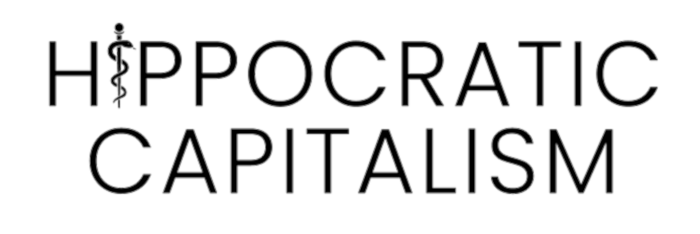Who Would Name a Healthcare Award after Martin Shkreli?

The Lown Institute’s 2023 Shkreli award ceremony took place last week. Some background: The Lown Institute is a think tank established in 2012 (its predecessor, the Lown Cardiovascular Research Foundation, was founded in 1974) by Dr. Bernard Lown, a Harvard cardiology professor famous for his contributions to cardioversion back in 1960s. The Lown Institute focuses on ethical behaviour across the healthcare industry. In their words, they advocate “bold ideas for a just and caring system for health.”
My favorite Lown Institute activity is the Shkreli awards, presented annually since 2017. Martin Shkreli of course is the famous “pharma bro” who cornered the market on Daraprim, an obscure antimicrobial drug used mainly in HIV disease, in order to raise the price from $13.50 to $750 per tablet. (In the rest of the world, the drug has been available all along for pennies per tablet, but that’s another story.) His company simultaneously restricted distribution of the drug to prevent potential competitors from being able to perform the bioequivalence studies necessary for FDA approval. Shkreli defended his actions with a car analogy: “If there was a company that was selling an Aston Martin at the price of a bicycle, and we buy that company and we ask to charge Toyota prices, I don't think that that should be a crime.” Obviously, though, no one dies for lack of an Aston Martin. Shkreli was later convicted of securities fraud and served 4 years in a federal prison. Just as with Elizabeth Holmes, it’s likely that his prosecution and conviction resulted more from moral outrage at his healthcare sins, rather than his financial sins.
As awful as Shkreli’s actions were, they were the same tactics routinely employed in both the pharma and medical device industries. And from interviews, it’s clear that Shkreli was surprised that he was singled out for vilification. So what did he miscalculate?
I think the simplest explanation is the boiling frog metaphor. (Which isn’t actually a true description of frog behaviour, but is an excellent description of human behaviour.) Drug companies, hospitals, physicians, insurance companies, when they want to extract more from their customers, usually do so incrementally. A 5% increase this year, then another 5% next year, and so on. They do this precisely to avoid social sanction, knowing full well that healthcare pricing is not simply a mathematical model, but a social phenomenon where the public can and will push back when pushed too far. So they only go as fast as they think they can get away with. The result being that each year, companies and families cough up hundreds more per person for health insurance and out-of-pocket payments. And each year, more of the public is forced into personal bankruptcy by medical debt. The water just keeps heating up. Shkreli's error lay in not seeing the social contract against profiteering hidden beneath incremental price gouging.
Which brings me back to the Lown Institute. I love what they’re doing. First, by calling out examples of bad faith and bad stewardship and outright fraud, they’re fighting against complacency to the heating water. Second, they’re equal-opportunity critics. They don’t simply pick a single sector to focus on, such as pharma or insurers. This is important, because in healthcare, every market sector has become a major contributor to harm.
This year’s Shkreli awards highlighted cases of both economic harm and physical harm caused by a range of players:
- Multiple different hospitals and hospital systems
- Two individual physicians
- A medical device company
- A pharmaceutical company
- The US pharmaceutical industry and its lobby
- A university
Health insurance companies got off easy this year, but have been in the spotlight in previous years’ awards.
The bottom line: the only way we’re going to fix American healthcare is for all of us, across all sectors of the industry, to hold each other accountable.
